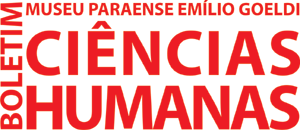In the first two decades of the 20th century, publications of Euclides da Cunha, Alberto Rangel and Carlos Chagas about the Amazon presented from different perspectives a critique of what they considered unrealistic visions originated in the travel accounts of naturalists of 18th and 19th centuries. Alternatively, they proposed the analysis of the region from the perspective of new scientific knowledge, which included several areas - from geology to tropical medicine. Recent studies have indicated the need for more research on the institutions and local scientific practices, both in the development of ideas about the region and the definition of public policies. This article is proposed on this perspective, to reflect on the different ideas that were built by the medical-scientific thought about Nature and Society in the state of Amazonas during the Brazilian First Republic, when the rise and decline of the Amazonian rubber was experienced. It is understood that local physicians actively participated in scientific discussions related to tropical medicine, and put into practice the main theses about control and prevention of endemic diseases like malaria and yellow fever. This set of ideas and practices contributed to the definition of sanitation of the city of Manaus and the hinterland of state of Amazonas.
Science; Nature; Sanitation; Tropical medicine; Amazonas; Amazon
